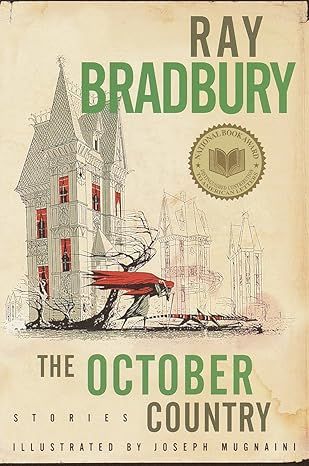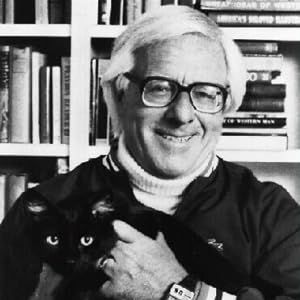The October Country: Stories
4.6
-
1,736 ratings
The October Country is Ray Bradbury’s own netherworld of the soul, inhabited by the horrors and demons that lurk within all of us. Renowned for his multi-million-copy bestseller, Fahrenheit 451, and hailed by Harper’s magazine as “the finest living writer of fantastic fiction,” Ray Bradbury proves here that he is America’s master of the short story.
This classic collection features:
The Emissary: The faithful dog was the sick boy’s only connection with the world outside—and beyond . . . The Small Assassin: A fine, healthy baby boy was the new mother’s dream come true—or her worst nightmare . . . The Scythe: Just when his luck had run out, Drew Erickson inherited a farm from a stranger; and with the bequest came deadly responsibilities . . . The Jar: A chilling story that combines love, death . . . and a matter of identity in a bottle of fear. The Wonderful Death of Dudley Stone: A most remarkable case of murder—the deceased was delighted . . .
Plus fourteen more unforgettable tales!
“An author whose fanciful imagination, poetic prose, and mature understanding of human character have won him an international reputation.”— The New York Times
Kindle
$12.99
Available instantly
Audiobook
$0.00
with membership trial
Hardcover
$19.19
Paperback
$13.59
Ships from
Amazon.com
Payment
Secure transaction
ISBN-10
0345407857
ISBN-13
978-0345407856
Print length
352 pages
Language
English
Publisher
Del Rey
Publication date
September 23, 1996
Dimensions
5.5 x 0.8 x 8.24 inches
Item weight
9.6 ounces
Product details
ASIN :
B00C4TJACE
File size :
6819 KB
Text-to-speech :
Enabled
Screen reader :
Supported
Enhanced typesetting :
Enabled
X-Ray :
Enabled
Word wise :
Enabled
Editorial reviews
Amazon.com Review
Ray Bradbury's first short story collection is back in print, its chilling encounters with funhouse mirrors, parasitic accident-watchers, and strange poker chips intact. Both sides of Bradbury's vaunted childhood nostalgia are also on display, in the celebratory "Uncle Einar," and haunting "The Lake," the latter a fine elegy to childhood loss. This edition features a new introduction by Bradbury, an invaluable essay on writing, wherein the author tells of his "Theater of Morning Voices," and, by inference, encourages you to listen to the same murmurings in yourself. And has any writer anywhere ever made such good use of exclamation marks!?
From the Inside Flap
COUNTRY is Ray Bradbury's own netherworld of the soul, inhabited by the horrors and demons that lurk within all of us. This classic collection of short stories includes: THE EMISSARY: The faithful dog was the sick boy's only connection with the world outside--and beyond. . . THE SMALL ASSASSIN: A fine, healthy baby boy was the new mother's dream come true--or her worst nightmare. . . THE SCYTHE: Just when his luck had run out, Drew Erickson inherited a farm from a stranger! And with the bequest came deadly responsibilities. . . THE JAR: A chilling story that combines love, death . . . and a matter of identity in a bottle of fear! THE WONDERFUL DEATH OF DUDLEY STONE: A most remarkable case of murder--the deceased was delighted! Plus nineteen more terrifying tales! Renowned for his five-million copy bestseller, Fahrenheit 451, and hailed as the finest living writer of fantastic fiction, Ray Bradbury shows with each of these nineteen stories his brilliant knac
From the Back Cover
THE OCTOBER COUNTRY is Ray Bradbury's own netherworld of the soul, inhabited by the horrors and demons that lurk within all of us. This classic collection of short stories includes: THE EMISSARY: The faithful dog was the sick boy's only connection with the world outside--and beyond. . . THE SMALL ASSASSIN: A fine, healthy baby boy was the new mother's dream come true--or her worst nightmare. . . THE SCYTHE: Just when his luck had run out, Drew Erickson inherited a farm from a stranger! And with the bequest came deadly responsibilities. . . THE JAR: A chilling story that combines love, death . . . and a matter of identity in a bottle of fear! THE WONDERFUL DEATH OF DUDLEY STONE: A most remarkable case of murder--the deceased was delighted! Plus nineteen more terrifying tales! Renowned for his five-million copy bestseller, Fahrenheit 451, and hailed as the finest living writer of fantastic fiction, Ray Bradbury shows with each of these nineteen stories his brilliant knack for extracting the chilling essence of a world's insanities, disorders, and hang-ups. Once again he proves himself to be America's master of the short story. "An author whose fanciful imagination, poetic prose, and mature understanding of human character have won him an international reputation." --The New York Times
About the Author
Ray Bradbury (1920–2012) was America's foremost writer of science fiction and fantasy. Among his most popular adult books were Fahrenheit 451, The Martian Chronicles, The Illustrated Man, Dandelion Wine, and Death Is a Lonely Business. In addition, he wrote several books for children, including Switch on the Night. In recognition of his stature in the world of literature, Bradbury was awarded the National Book Foundation's 2000 Medal for Distinguished Contribution to American Letters and the National Medal of Arts in 2004.
Read more
Sample
Excerpt. © Reprinted by permission. All rights reserved.
THE DWARF
Aimee watched the sky, quietly.
Tonight was one of those motionless hot summer nights. The concrete pier empty, the strung red, white, yellow bulbs burning like insects in the air above the wooden emptiness. The managers of the various carnival pitches stood, like melting wax dummies, eyes staring blindly, not talking, all down the line.
Two customers had passed through an hour before. Those two lonely people were now in the roller coaster, screaming murderously as it plummeted down the blazing night, around one emptiness after another.
Aimee moved slowly across the strand, a few worn wooden hoopla rings sticking to her wet hands. She stopped behind the ticket booth that fronted the MIRROR MAZE. She saw herself grossly misrepresented in three rippled mirrors outside the Maze. A thousand tired replicas of herself dissolved in the corridor beyond, hot images among so much clear coolness.
She stepped inside the ticket booth and stood looking a long while at Ralph Banghart’s thin neck. He clenched an unlit cigar between his long uneven yellow teeth as he laid out a battered game of solitaire on the ticket shelf.
When the roller coaster wailed and fell in its terrible avalanche again, she was reminded to speak.
“What kind of people go up in roller coasters?”
Ralph Banghart worked his cigar a full thirty seconds. “People wanna die. That rollie coaster’s the handiest thing to dying there is.” He sat listening to the faint sound of rifle shots from the shooting gallery. “This whole damn carny business’s crazy. For instance, that dwarf. You seen him? Every night, pays his dime, runs in the Mirror Maze all the way back through to Screwy Louie’s Room. You should see this little runt head back there. My God!”
“Oh, yes,” said Aimee, remembering. “I always wonder what it’s like to be a dwarf. I always feel sorry when I see him.”
“I could play him like an accordion.”
“Don’t say that!”
“My Lord.” Ralph patted her thigh with a free hand. “The way you carry on about guys you never even met.” He shook his head and chuckled. “Him and his secret. Only he don’t know I know, see? Boy howdy!”
“It’s a hot night.” She twitched the large wooden hoops nervously on her damp fingers.
“Don’t change the subject. He’ll be here, rain or shine.”
Aimee shifted her weight.
Ralph seized her elbow. “Hey! You ain’t mad? You wanna see that dwarf, don’t you? Sh!” Ralph turned. “Here he comes now!”
The Dwarf’s hand, hairy and dark, appeared all by itself reaching up into the booth window with a silver dime. An invisible person called, “One!” in a high, child’s voice.
Involuntarily, Aimee bent forward.
The Dwarf looked up at her, resembling nothing more than a dark-eyed, dark-haired, ugly man who has been locked in a winepress, squeezed and wadded down and down, fold on fold, agony on agony, until a bleached, outraged mass is left, the face bloated shapelessly, a face you know must stare wide-eyed and awake at two and three and four o’clock in the morning, lying flat in bed, only the body asleep.
Ralph tore a yellow ticket in half. “One!”
The Dwarf, as if frightened by an approaching storm, pulled his black coat-lapels tightly about his throat and waddled swiftly. A moment later, ten thousand lost and wandering dwarfs wriggled between the mirror flats, like frantic dark beetles, and vanished.
“Quick!”
Ralph squeezed Aimee along a dark passage behind the mirrors. She felt him pat her all the way back through the tunnel to a thin partition with a peekhole.
“This is rich,” he chuckled. “Go on—look.”
Aimee hesitated, then put her face to the partition.
“You see him?” Ralph whispered.
Aimee felt her heart beating. A full minute passed.
There stood the Dwarf in the middle of the small blue room. His eyes were shut. He wasn’t ready to open them yet. Now, now he opened his eyelids and looked at a large mirror set before him. And what he saw in the mirror made him smile. He winked, he pirouetted, he stood sidewise, he waved, he bowed, he did a little clumsy dance.
And the mirror repeated each motion with long, thin arms, with a tall, tall body, with a huge wink and an enormous repetition of the dance, ending in a gigantic bow!
“Every night the same thing,” whispered Ralph in Aimee’s ear. “Ain’t that rich?”
Aimee turned her head and looked at Ralph steadily out of her motionless face, for a long time, and she said nothing. Then, as if she could not help herself, she moved her head slowly and very slowly back to stare once more through the opening. She held her breath. She felt her eyes begin to water.
Ralph nudged her, whispering.
“Hey, what’s the little gink doin’ now?”
They were drinking coffee and not looking at each other in the ticket booth half an hour later, when the Dwarf came out of the mirrors. He took his hat off and started to approach the booth, when he saw Aimee and hurried away.
“He wanted something,” said Aimee.
“Yeah.” Ralph squashed out his cigarette, idly. “I know what, too. But he hasn’t got the nerve to ask. One night in this squeaky little voice he says, ‘I bet those mirrors are expensive.’ Well, I played dumb. I said yeah they were. He sort of looked at me, waiting, and when I didn’t say any more, he went home, but next night he said, ‘I bet those mirrors cost fifty, a hundred bucks.’ I bet they do, I said. I laid me out a hand of solitaire.”
“Ralph,” she said.
He glanced up. “Why you look at me that way?”
“Ralph,” she said, “why don’t you sell him one of your extra ones?”
“Look, Aimee, do I tell you how to run your hoop circus?”
“How much do those mirrors cost?”
“I can get ’em secondhand for thirty-five bucks.”
“Why don’t you tell him where he can buy one, then?”
“Aimee, you’re not smart.” He laid his hand on her knee. She moved her knee away. “Even if I told him where to go, you think he’d buy one? Not on your life. And why? He’s self-conscious. Why, if he even knew I knew he was flirtin’ around in front of that mirror in Screwy Louie’s Room, he’d never come back. He plays like he’s goin through the Maze to get lost, like everybody else. Pretends like he don’t care about that special room. Always waits for business to turn bad, late nights, so he has that room to himself. What he does for entertainment on nights when business is good, God knows. No, sir, he wouldn’t dare go buy a mirror anywhere. He ain’t got no friends, and even if he did he couldn’t ask them to buy him a thing like that. Pride, by God, pride. Only reason he even mentioned it to me is I’m practically the only guy he knows. Besides, look at him—he ain’t got enough to buy a mirror like those. He might be savin’ up, but where in hell in the world today can a dwarf work? Dime a dozen, drug on the market, outside of circuses.”
“I feel awful. I feel sad.” Aimee sat staring at the empty boardwalk. “Where does he live?”
“Flytrap down on the waterfront. The Ganghes Arms. Why?”
“I’m madly in love with him, if you must know.”
He grinned around his cigar. “Aimee,” he said. “You and your very funny jokes.
A warm night, a hot morning, and a blazing noon. The sea was a sheet of burning tinsel and glass.
Aimee came walking, in the locked-up carnival alleys out over the warm sea, keeping in the shade, half a dozen sun-bleached magazines under her arm. She opened a flaking door and called into hot darkness. “Ralph?” She picked her way through the black hall behind the mirrors, her heels tacking the wooden floor. “Ralph?”
Someone stirred sluggishly on the canvas cot. “Aimee?”
He sat up and screwed a dim light bulb into the dressing table socket. He squinted at her, half blinded. “Hey, you look like the cat swallowed a canary.”
“Ralph, I came about the midget!”
“Dwarf, Aimee honey, dwarf. A midget is in the cells, born that way. A dwarf is in the glands. . . .”
“Ralph! I just found out the most wonderful thing about him!”
“Honest to God,” he said to his hands, holding them out as witnesses to his disbelief. “This woman! Who in hell gives two cents for some ugly little—”
“Ralph!” She held out the magazines, her eyes shining. “He’s a writer! Think of that!”
“It’s a pretty hot day for thinking.” He lay back and examined her, smiling faintly.
“I just happened to pass the Ganghes Arms, and saw Mr. Greeley, the manager. He says the typewriter runs all night in Mr. Big’s room!”
“Is that his name?” Ralph began to roar with laughter.
“Writes just enough pulp detective stories to live. I found one of his stories in the secondhand magazine place, and, Ralph, guess what?”
“I’m tired, Aimee.”
“This little guy’s got a soul as big as all outdoors; he’s got everything in his head!”
“Why ain’t he writin’ for the big magazines, then, I ask you?”
“Because maybe he’s afraid—maybe he doesn’t know he can do it. That happens. People don’t believe in themselves. But if he only tried, I bet he could sell stories anywhere in the world.”
“Why ain’t he rich, I wonder?”
“Maybe because ideas come slow because he’s down in the dumps. Who wouldn’t be? So small that way? I bet it’s hard to think of anything except being so small and living in a one-room cheap apartment.”
“Hell!” snorted Ralph. “You talk like Florence Nightingale’s grandma.”
She held up the magazine. “I’ll read you part of his crime story. It’s got all the guns and tough people, but it’s told by a dwarf. I bet the editors never guessed the author knew what he was writing about. Oh, please don’t sit there like that, Ralph! Listen.”
And she began to read aloud.
“I am a dwarf and I am a murderer. The two things cannot be separated. One is the cause of the other.
“The man I murdered used to stop me on the street when I was twenty-one, pick me up in his arms, kiss my brow, croon wildly to me, sing Rock-a-bye Baby, haul me into meat markets, toss me on the scales and cry, ‘Watch it. Don’t weigh your thumb, there, butcher!
“Do you see how our lives moved toward murder? This fool, this persecutor of my flesh and soul!
“As for my childhood: my parents were small people, not quite dwarfs, not quite. My father’s inheritance kept us in a doll’s house, an amazing thing like a white-scrolled wedding cake—little rooms, little chairs, miniature paintings, cameos, ambers with insects caught inside, everything tiny, tiny, tiny! The world of Giants far away, an ugly rumor beyond the garden wall. Poor mama, papa! They meant only the best for me. They kept me, like a porcelain vase, small and treasured, to themselves, in our ant world, our beehive rooms, our microscopic library, our land of beetle-sized doors and moth windows. Only now do I see the magnificent size of my parents’ psychosis! They must have dreamed they would live forever, keeping me like a butterfly under glass. But first father died, and then fire ate up the little house, the wasp’s nest, and every postage-stamp mirror and saltcellar closet within. Mama, too, gone! And myself alone, watching the fallen embers, tossed out into a world of Monsters and Titans, caught in a landslide of reality, rushed, rolled, and smashed to the bottom of the cliff!
“It took me a year to adjust. A job with a sideshow was unthinkable. There seemed no place for me in the world. And then, a month ago, the Persecutor came into my life, clapped a bonnet on my unsuspecting head, and cried to friends, ‘I want you to meet the little woman!’ ”
Aimee stopped reading. Her eyes were unsteady and the magazine shook as she handed it to Ralph. “You finish it. The rest is a murder story. It’s all right. But don’t you see? That little man. That little man.”
Ralph tossed the magazine aside and lit a cigarette lazily. “I like Westerns better.”
“Ralph, you got to read it. He needs someone to tell him how good he is and keep him writing.”
Ralph looked at her, his head to one side. “And guess who’s going to do it? Well, well, ain’t we just the Saviour’s right hand?”
“I won’t listen!”
Read more
About the authors
Ray Bradbury
In a career spanning more than seventy years, Ray Bradbury, who died on June 5, 2012, at the age of 91, inspired generations of readers to dream, think, and create. A prolific author of hundreds of short stories and close to fifty books, as well as numerous poems, essays, operas, plays, teleplays, and screenplays, Bradbury was one of the most celebrated writers of our time. His groundbreaking works include Fahrenheit 451, The Martian Chronicles, The Illustrated Man, Dandelion Wine, and Something Wicked This Way Comes. He wrote the screen play for John Huston's classic film adaptation of Moby Dick, and was nominated for an Academy Award. He adapted sixty-five of his stories for television's The Ray Bradbury Theater, and won an Emmy for his teleplay of The Halloween Tree. He was the recipient of the 2000 National Book Foundation Medal for Distinguished Contribution to American Letters, the 2004 National Medal of Arts, and the 2007 Pulitzer Prize Special Citation, among many honors.
Throughout his life, Bradbury liked to recount the story of meeting a carnival magician, Mr. Electrico, in 1932. At the end of his performance Electrico reached out to the twelve-year-old Bradbury, touched the boy with his sword, and commanded, "Live forever!" Bradbury later said, "I decided that was the greatest idea I had ever heard. I started writing every day. I never stopped."
Read more
Reviews
Customer reviews
4.6 out of 5
1,736 global ratings
Kindle Customer
5
As advertised: Works perfectly:
Reviewed in the United States on August 22, 2024
Verified Purchase
I often browse for books in the stores, and when it comes to purchasing, i prefer Amazon. I like my books in perfect condition. Amazon did not disappoint. The book is high quality.
G. Fisher
5
Entertaining and Enlightening
Reviewed in the United States on December 11, 2023
Verified Purchase
Ray Bradbury was unquestionably one of the most accomplished writers of the 20th Century, a master of plot, pacing, and perfect phrasing. "The October Country" can be enjoyed as superlative fantasy, offering nineteen of the master's best stories, but with careful reading his work can also make you a better writer, should that be your goal. I can't recommend this book highly enough on either basis.
Read more
4 people found this helpful
Susan Santo
5
Scary Short Stories by a Master
Reviewed in the United States on May 12, 2024
Verified Purchase
In my opinion this collection of dark fantasy is one of Ray Bradbury's best story collections.
Top Ray Bradbury titles
View all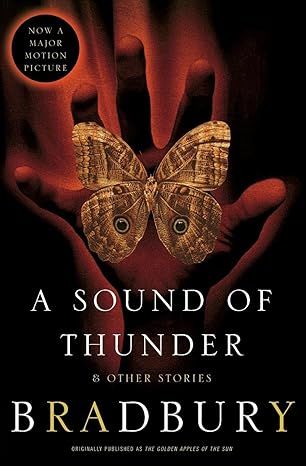
A Sound of Thunder and Other Stories
4.5
-
524
$13.09
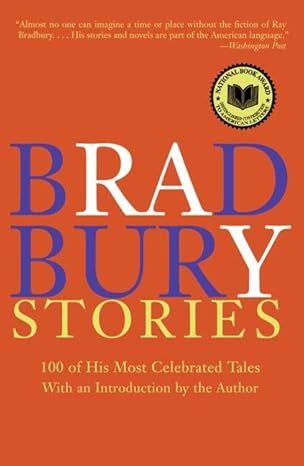
Bradbury Stories: 100 of His Most Celebrated Tales
4.7
-
1,363
$11.60
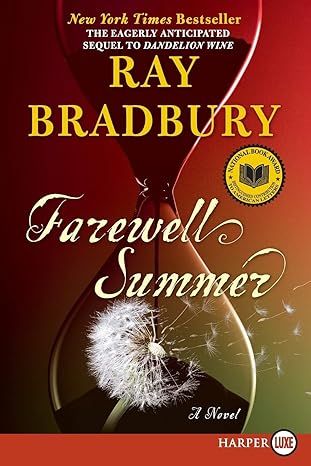
Farewell Summer
4.3
-
731
$0.99
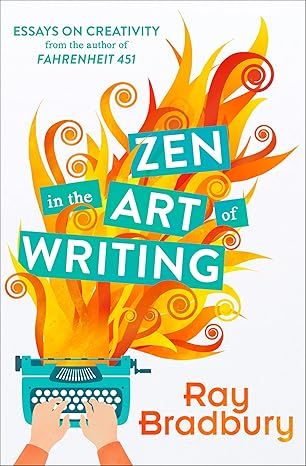
Zen in the Art of Writing
4.4
-
1,527
$14.33
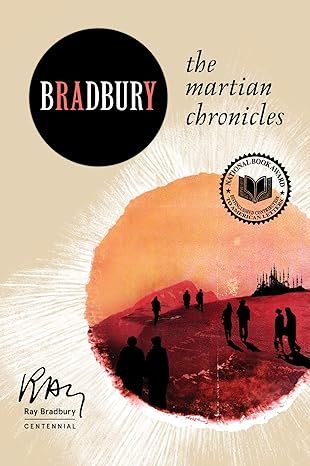
The Martian Chronicles
4.5
-
7,293
$0.99
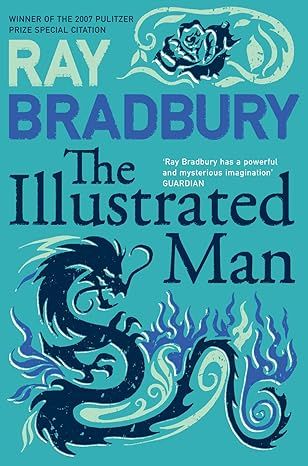
The Illustrated Man (Flamingo Modern Classics)
4.6
-
4,344
$9.31
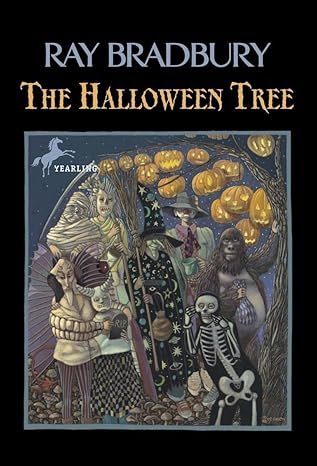
The Halloween Tree
4.6
-
3,112
$1.99
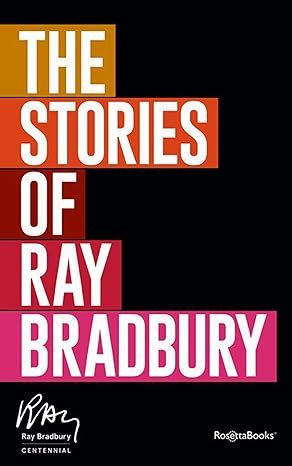
The Stories of Ray Bradbury: Introduction by Christopher Buckley (Everyman's Library Contemporary Classics Series)
4.7
-
1,003
$2.99
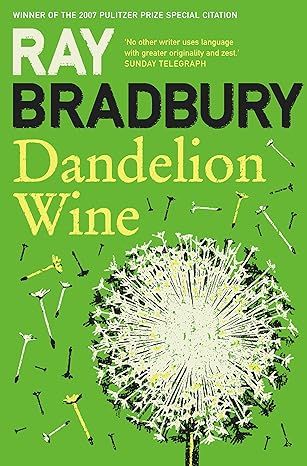
Dandelion Wine (English and French Edition)
4.5
-
3,529
$14.36
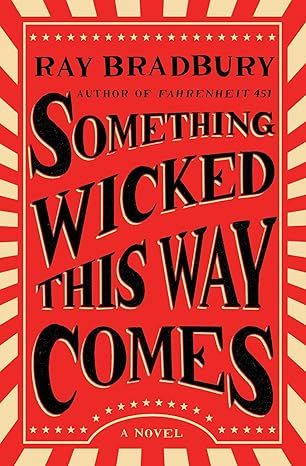
Something Wicked This Way Comes: A Novel
4.4
-
6,928
$0.99
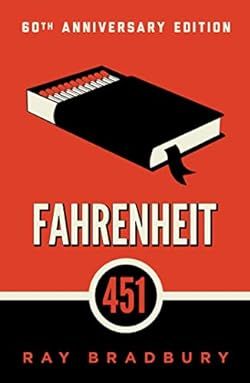
Fahrenheit 451
4.6
-
52,920
$4.68
Similar Books
Best sellers
View all
The Tuscan Child
4.2
-
100,022
$8.39

The Thursday Murder Club: A Novel (A Thursday Murder Club Mystery)
4.3
-
155,575
$6.33

Sapiens: A Brief History of Humankind
4.6
-
140,302
$13.49

The Butterfly Garden (The Collector, 1)
4.3
-
88,556
$9.59

Things We Hide from the Light (Knockemout Series, 2)
4.4
-
94,890
$11.66

The Last Thing He Told Me: A Novel
4.3
-
154,085
$2.99

The Perfect Marriage: A Completely Gripping Psychological Suspense
4.3
-
143,196
$9.47

The Coworker
4.1
-
80,003
$13.48

First Lie Wins: A Novel (Random House Large Print)
4.3
-
54,062
$14.99

Mile High (Windy City Series Book 1)
4.4
-
59,745
$16.19

Layla
4.2
-
107,613
$8.99

The Locked Door
4.4
-
94,673
$8.53
